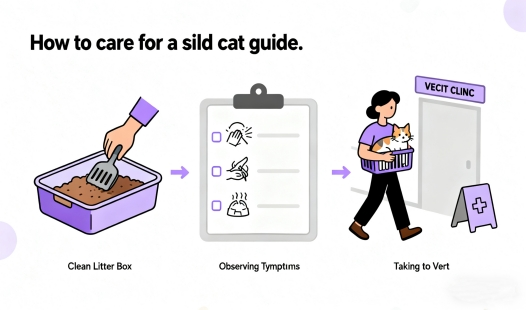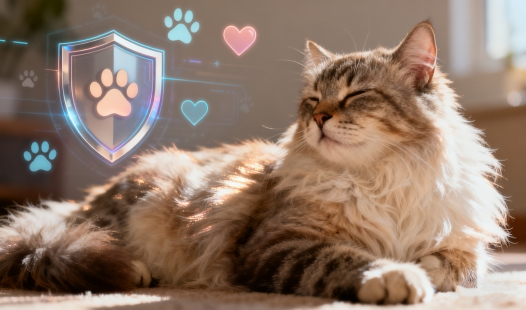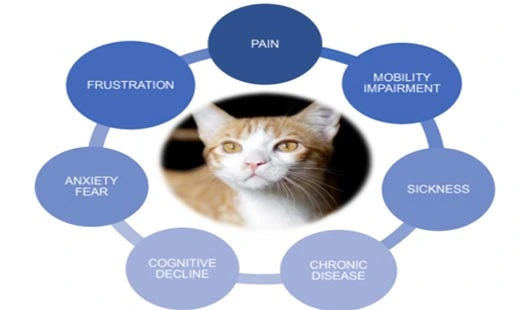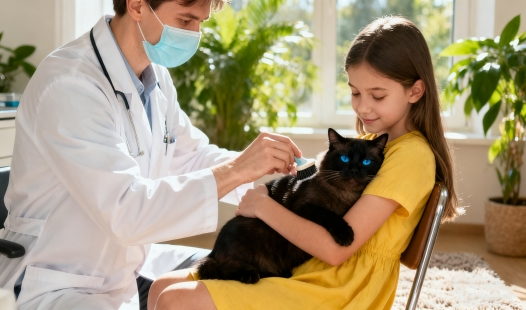How to manage missed doses during GS-441524 therapy?
Defining the Clinical Implications of a Missed GS-441524 Tablet Dose
- Defining the Clinical Implications of a Missed GS-441524 Tablet Dose
- Protocol for Managing a Single Missed Dose of GS-441524 Tablet
- Strategies for Compensating Multiple Missed Doses in GS-441524 Tablet Therapy
- The Impact of Dosage Irregularity on the Overall Efficacy of GS-441524 Tablet Treatment
- Establishing a Robust System to Maintain GS-441524 Tablet Dosage Schedule Adherence
- Conclusion
- FAQ
- Experience the BLOOM TECH Advantage in GS-441524 Therapy
- References
Cats all over the world get feline infectious peritonitis (FIP), a terrible disease. GS-441524 tablet treatment has been shown to work as a possible way to treat it. To get the best results from this medicine, you need to take it exactly as directed. But sometimes things don't go as planned, and missed doses make pet owners and vets worry. This detailed guide tries to help cat owners deal with missed doses during GS-441524 tablet treatment so that they can keep giving their cats the best care possible.

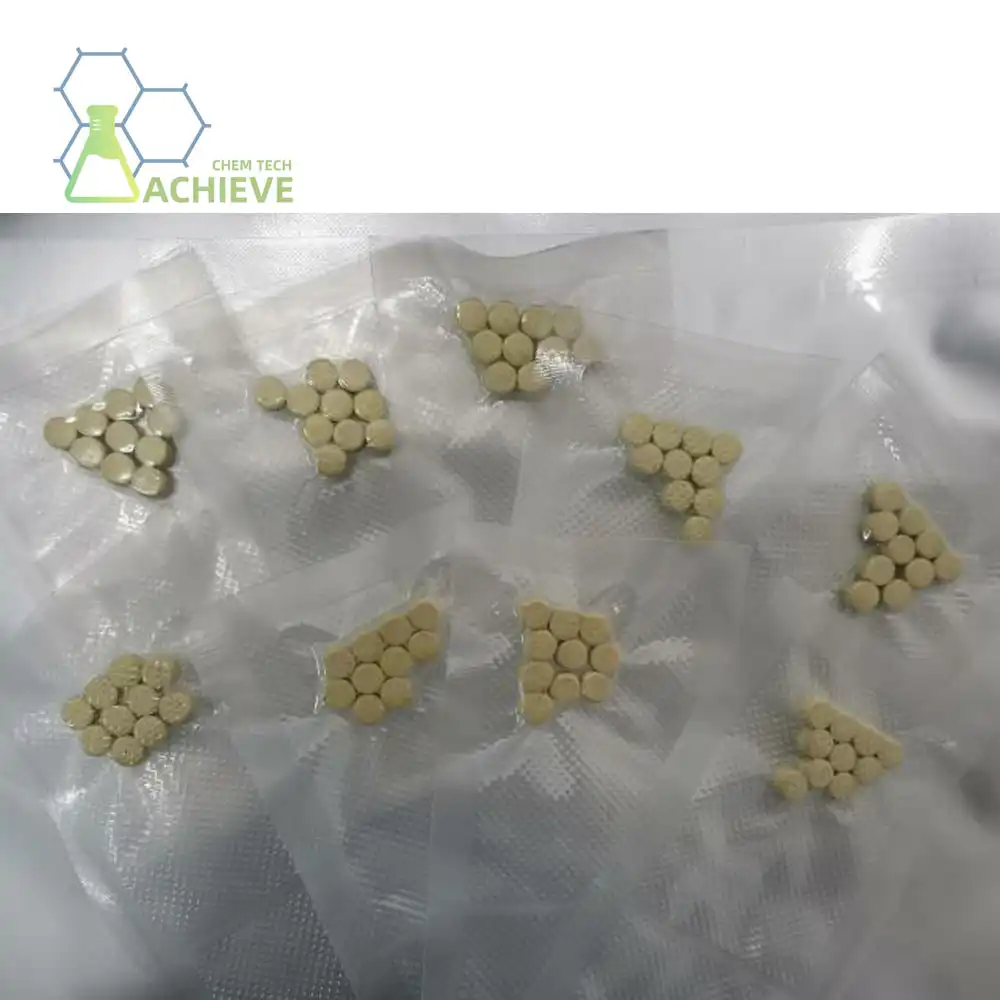
Defining the Clinical Implications of a Missed GS-441524 Tablet Dose
Both cat owners and vets need to know what could happen if a dose of GS-441524 is missed. The GS-441524 tablet works by stopping the virus from replicating. It is important to keep stable blood levels of the drug in order to maintain its antiviral benefits. When an amount is missed, it can have a number of effects on a person's health, such as:
Lowered Antiviral Effectiveness
Missing just one dose could lower the quantity of GS-441524 in the cat's body for a short time, possibly allowing for a short period of greater viral activity. While missing one dose is not likely to undo all the good the treatment has done, it could slow down the cat's healing or cause a small setback in its progress against FIP.
Possibility of getting viruses again
If more than one dose is missed, there is a risk that virus return will happen. This happens when the virus that may have been kept under control but not completely killed starts to replicate more actively because drug levels in the body go down. Viral return can cause symptoms to come back and may make the treatment less successful overall.
Effect on the Length of Treatment
If doses are regularly missed, the overall length of the treatment may be lengthened. But if there are breaks in the dose plan, the treatment may need to be longer in order to completely stop the virus and get back to clinical remission. The standard way to treat with GS-441524 is to give it for twelve weeks.
Protocol for Managing a Single Missed Dose of GS-441524 Tablet
When a single dose of GS-441524 is missed, it is important to move quickly and follow a set plan in order to reduce any possible negative effects on the treatment path. Here is a list of steps to follow if you miss a dose:
Immediate Action When You Realize
As soon as you know that a dose was missed, check how much time has passed since the planned dose. If the time for the dose has not passed by a few hours, give it right away. This quick move can help keep the medicine in the cat's body at amounts that are good for treating it.
Changing the Dosing Schedule
If the dose was missed more than 6 hours ago, it's usually best to skip it and stick to the normal routine from then on. This method helps keep the right amount of time between doses and stops people from accidentally taking too much.
Keeping an Eye on Symptom Changes
It's important to keep a close eye on your cat for any changes in behavior or signs that may happen after missing a dose. It's very unlikely that missing just one dose will lead to serious problems, but keeping an eye on things can help you spot any issues early on.
Record Keeping and Talking
Write down the missed dose in a medicine log or notebook. Your doctor can use this information to see how well the treatment plan is being followed generally and to make any needed changes. Let your vet know about the missed dose at the next appointment or sooner if you see any changes that worry you in your cat's health.
 |
 |
 |
Strategies for Compensating Multiple Missed Doses in GS-441524 Tablet Therapy
When multiple doses of the GS-441524 tablet are missed, a more thorough method is needed to make sure the treatment still works. Here are some ways to make up for missed doses:
Talking to the Veterinarian
The first and most important thing to do is talk to your doctor right away. They can figure out exactly what's going on by looking at things like how many doses were missed, how the cat's health is, and how the FIP treatment is going. Based on this test, they can give you specific advice on what to do next.
Possible Changes to the Dose
Your doctor may suggest raising the dose for a short time in order to make up for the missed doses. This change is meant to quickly get GS-441524 back to a level where it is still working as medicine in the cat's body. But, it's very important to follow the vet's advice exactly, because giving the wrong amount can make things worse.
Longer Treatment Time
If several doses are missed, the total treatment length may need to be extended. To make sure that all the viruses are suppressed and there is no chance of return, your vet might suggest adding extra days or weeks to the normal 12-week procedure.
The Impact of Dosage Irregularity on the Overall Efficacy of GS-441524 Tablet Treatment
Irregular doses of GS-441524 can have a big impact on how well the treatment works in general. Understanding these effects is important for keeping the service honest:
Lowered ability to suppress viruses
Consistent doses is key to keeping enough GS-441524 in the cat's system so that the virus can't replicate. Inconsistent doses can cause changes in the drug's dosage, which may let the virus become more active for a time. This can make it take longer to get better, and in the worst cases, the treatment may fail entirely.
Higher Risk of Drug Resistance
Inconsistent dosing can lead to less than ideal drug levels, which can make conditions more likely for drug-resistant virus strains to form. This is a big problem because it can make the treatment less successful or even completely useless, which limits the cat's future treatment choices.
Long Course of Treatment
Irregular dosage often means that longer treatment times are needed. What could have been a 12-week course might go on for several weeks or months more. This would cost the cat's owner more money and stress out the cat.
Establishing a Robust System to Maintain GS-441524 Tablet Dosage Schedule Adherence
To lower the risk of missed doses of GS-441524, a strong method for following the dosage plan must be put in place to be sure that it is always given at the right time. These are some good ways to help:
Utilize Digital Reminders
You should set up a lot of alarms or notes on your smartphone or any other digital device that you use. Use apps that are specifically designed to remember people to take their medicine. These apps can keep track of doses that have already been given and send alerts at scheduled times.
Create a Visual Dosing Chart
Make a chart or calendar that shows the dosing plan in a clear way. Put this where people will see it, like on the fridge or close to your cat's food area. Mark off each amount as it's given to keep an exact record.
Set up a Buddy System
If you can, get a family member or a friend you trust to help with the dose process. This person can remember you or even give the medicine to them if you are not around. Having people to help you can make it a lot less likely that you will miss doses.
 |
 |
 |
Conclusion
Managing missed doses during GS-441524 therapy is an important part of making sure that cats with FIP get better. It's okay to occasionally miss a dose, but sticking to the recommended dosing plan is very important. Pet parents can make GS-441524 treatment more effective and give their cats a better chance of getting better by learning about the effects of missed doses, following the right management rules, and making sure that their pets stick to the plan. Do not forget that talking openly with your vet and keeping a close eye on your cat's health are important parts of making sure that your cat's fip medicine works.
FAQ
Q1: If I miss a dose of GS-441524, can I take two doses the next time?
A1: No, you should not give your pet GS-441524 twice as much unless your vet tells you to. Doubling the dose might not even make up for the missed dose and could cause side effects. If you miss a dose, it's best to go back to the regular routine. Talk to your vet if you're worried about something.
Q2: How quickly can my cat's FIP treatment be affected by missing doses of GS-441524?
A2: The effect of missed doses can change based on how often doses are missed and how many are missed. Missing one dose probably won't have a big impact on the treatment, but missing several doses over time can lower the body's ability to fight the virus and possibly slow down healing. It's important to keep the dose the same every time for the best treatment effect.
Q3: If my cat has trouble taking GS-441524 pills, is it okay to crush them?
A3: Before changing the way any medicine is given, including GS-441524 pills, you should always talk to your doctor first. Some drugs can lose their effect or become dangerous when they are crushed. If your cat has trouble taking the pills, your veterinarian can tell you how to give the medicine in a different way.
Experience the BLOOM TECH Advantage in GS-441524 Therapy
For cats with infectious peritonitis, we at BLOOM TECH know how important it is to have constant and effective GS-441524 tablet therapy. Our commitment to quality and reliability sets us apart as a leading GS-441524 manufacturer. We make sure that every batch of GS-441524 tablets meets the highest standards of purity and effectiveness with our cutting-edge production facilities and strict quality control measures. You can count on BLOOM TECH to give you the best FIP drugs for your cat patients. For inquiries about our GS-441524 tablet products or to place an order, please contact our dedicated team at Sales@bloomtechz.com. Partner with BLOOM TECH for unparalleled support in your FIP treatment protocols.
References
1. Pedersen, N.C., et al. (2019). Efficacy and safety of the nucleoside analog GS-441524 for treatment of cats with naturally occurring feline infectious peritonitis. Journal of Feline Medicine and Surgery, 21(4), 271-281.
2. Murphy, B.G., et al. (2020). Treatment of cats with feline infectious peritonitis using GS-441524. Animals, 10(2), 249.
3. Kim, Y., et al. (2021). Antiviral efficacy of GS-441524 against feline infectious peritonitis virus. Veterinary Microbiology, 258, 109118.
4. Dickinson, P.J., et al. (2020). Antiviral treatment using the adenosine nucleoside analogue GS-441524 in cats with clinically diagnosed neurological feline infectious peritonitis. Journal of Veterinary Internal Medicine, 34(4), 1587-1593.

Echo
9 years of experience in chemical articles; Doctoral degree; Organic Chemistry major; R&D-4 Dept; Technology support; R&D engineer
Anticipating your Business & Technology support inquiry
Please send us the products that interest you, and we will provide you with one-on-one service
Recommended Blog
_副本_1762483580268.webp)
Are there natural or alternative treatments for FIP besides GS 441524?
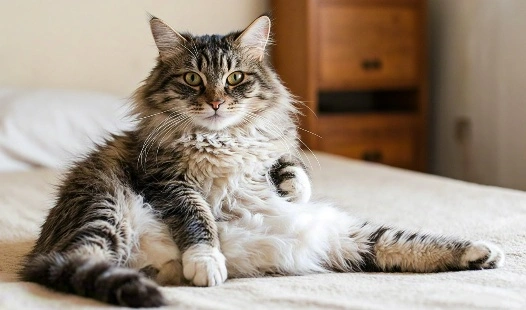
How to Spot Early FIP Symptoms and When to Start GS-441524?
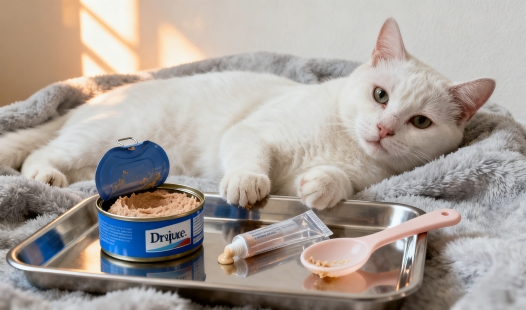
What should cats eat during GS 441524 treatment for faster recovery?
_副本_1760668477594.webp)
How Effective Is the FIP Vaccine? Insights from Recent Studies






